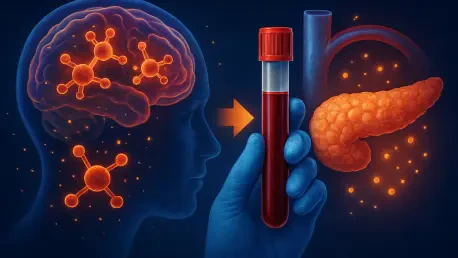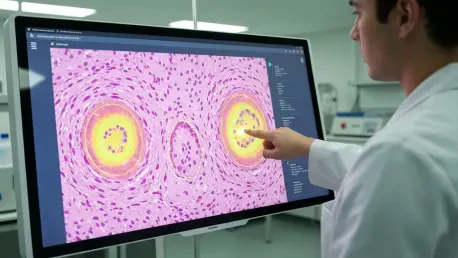
In the critical field of cardiovascular medicine, where a single scan can alter the course of a patient's life, a groundbreaking artificial intelligence tool is now demonstrating an ability not just to diagnose existing problems but to predict future heart attacks with startling accuracy. This

The silent progression from metabolic health to type 2 diabetes has long been a shadowy path for millions, but a groundbreaking fusion of artificial intelligence and cellular biology is beginning to illuminate the journey with unprecedented clarity. Globally, hundreds of millions of people are

In the quest to replicate and understand intelligence, humanity has created two profoundly complex systems for processing language: the intricate, evolved architecture of the human brain and the engineered, data-driven power of artificial intelligence language models. One is the product of millions

The 2022 mpox outbreak served as a stark reminder of our vulnerability to emerging infectious diseases. While existing smallpox vaccines offered a line of defense, they were a cumbersome tool against a rapidly spreading threat. Now, a stunning breakthrough powered by artificial intelligence has

Today, we are joined by Ivan Kairatov, a biopharma expert at the forefront of technological innovation in medicine. With colorectal cancer ranking as the third most common cancer worldwide and the second leading cause of cancer-related deaths, the medical community is urgently seeking better

A comprehensive analysis of an individual's drug exposure is a critical yet often elusive goal for doctors and researchers, as the true chemical history of a person is frequently obscured by incomplete and potentially misleading information. The conventional methods for gathering these details,